If the Congress lost in Tamil Nadu in 1967, never to return, or the DMK and the AIADMK have kept their place in power and electoral politics since then, it owes not to their love or hatred for gods or for one religion over another. Instead, they had always been linked to performance and incumbency/anti-incumbency factors.
There may be something in such constructs for Rajini’s strategic team to consider, especially if the superstar is to enter direct politics by around this time next year. But then, they would need to brush up their homework more than at present, says N Sathiya Moorthy.

Inadvertently or otherwise, Tamil filmdom’s superstar Rajinikanth has walked into what could be dubbed a self-set debate trap by talking in reference to Dravidian social icon, ‘Periyar’ E V Ramaswamy Naicker, and both have been at the centre of an avoidable political controversy.
Caught in the midst of his box-office success in the tri-lingual Darbar, released for this Pongal season, Rajini has been putting up a brave front, sending out the clear message that he was not one to run away from a political controversy if one presented itself.
Yet, if anyone in his camp thought that it would be yet another vote-catcher for the superstar if and when he launches the promised political party ahead of the Tamil Nadu assembly elections next year, it is not to be. The 100-year-long Dravidian socio-political, electoral history belies such expectations and calculations.
It all began with Rajini appearing on the dais of the Thuglak magazine’s annual reader-conference which founder-editor, the late ‘Cho’ S Ramaswamy had made a habit since the founding of the nation’s first political satire magazine way back in 1969.
Appearing alongside Cho’s successor-editor and RSS ideologue S Gurumurthy for the golden jubilee of the magazine, Rajini cited the 1971 ‘Salem episode’ as among the three controversies that showed up Cho as a fighter and also gave the magazine the kind of publicity that might not have been possible otherwise.
As Rajinikanth recalled, on the occasion, Cho was bold to publish photographs of what he said was news and pictures of a January 1971 ‘rationalist rally’ organised by Periyar’s Dravidar Kazhagam (DK) in Salem town, where he said pictures and idols of Hindu gods like Rama were desecrated.
Peeved at the possibility of adverse publicity affecting the party’s chances in the upcoming twin polls to the Lok Sabha and state assembly only weeks later, then DMK chief minister, the late M Karunanidhi’s government ordered the seizure of all copies of the Thuglak magazine, even while looking the other way to formal police complaints on the impending episode.
The ‘Salem incident’ was only one of the three that Rajinikanth had cited to praise Cho, the other two being the Emergency afterwards and the predecessor incidents involving the then Congress state government against the latter’s stage-play, Mohammed bin Thuglaq, possibly the nation’s first and best popular political satire, this one in Tamil. On all three occasions, Cho put up a brave fight, Rajini recalled.
What Rajini cited as an embodiment of Cho’s conviction and courage acquired controversial proportions when DK factions questioned him on details, without actually denying the rally or the fact that participants did commit desecration. Many of them claimed to be present at the Salem incident and recalled in Tamil TV talk shows and elsewhere that some over-zealous cadres did perform acts of desecration, but they also clarified that Periyar had expressed regret on the occasion.
Some did stage protests at Rajinikanth’s Poes Garden house, the posh Chennai locality made famous by late AIADMK chief minister Jayalalithaa and her residence. Others have since moved the courts for directions to the state police to file an FIR against the superstar for allegedly ‘causing enmity among communities’ under the IPC and proceed accordingly.
In a none-too-expected move, Rajinikanth appeared before the local media outside his house on Tuesday, to declare that he had media reports as evidence to what transpired at Salem in January 1971, and that no one could coerce him into apologising, as he had also not referred to Periyar in any adversarial terms at the Thuglak fete.
This has since revived the controversy, which might have died down after running its course in the media, especially on TV talk shows and social media as the traditional print media has been playing up the episode as low profile as they had done decades ago while reporting the Salem episode first-hand.
Rival participants in those talk shows, including veteran BJP leader and one-time state unit president, K V Lakshmanan, have been at each other’s throat, citing media reports, personal presence and information, and also later-day interpretations. Lakshmanan, who was then the Salem district president of the Jan Sangh, told his audience how he had approached the local police with a formal complaint about the episode. He too conceded that Periyar was not actually involved in the desecration, as he was going in the frontline of the DK rally that day.
However, he and other participants, some of them citing from brief newspaper reports from those days and also the banned copy of the Thuglak, did claim that the desecration was not a stand-alone affair as the rally programme had included it all.
The ongoing media row over the episode that much of the state has forgotten and most of the younger generation did not even know had happened, has brought back Periyar back into contemporary political discourse, that too ahead of next year’s assembly polls.
If Rajinikanth continues to face off such public challenges to his credibility, or credibility of his public claims, it would also show him up as someone who was ready to stand by his words and fight back, without running away from wordy duels of the kind -- and in preparation for electoral fights of the future.
In a state that had been accustomed to strong and charismatic political personalities like Karunanidhi, MGR and Jayalalilthaa in recent years and equally tall chief ministers in K Kamaraj and M Bhaktavatsalam (Congress) and DMK founder C N Annadurai, personal courage to take up political and electoral challenges is considered a sine qua non for convincing the voter that here was a man who would stand by his word, and whom they could trust.
Rajinikanth needs both ahead of his formal entry into electoral politics. At a more personal level, the episode might have also shown for him the treacherous route that politics could take as he may have already been left with little chance to fight back, yet with the full awareness that he had been caught on the wrong foot -- that too for something he did not intend saying, nor did he say intentionally (even if the rival claims were true and verbatim).
To that very limited extent, Rajini may just now find himself in a quandary, whatever be his final decision on entering direct politics and doing so ahead of the assembly polls next year.
Rajini’s present posture thus rivals his past presentations, when he would often make one-off statements, either off-screen but more often on-screen, with no practical follow-up, to be able to convince his core fan following, most of whom are in their 50s and 60s with their own cares and worries to attend to.
Compared to his movies from the early ’90s, when his film-makers made a deliberate effort at Rajini’s character mouthing a few politically-charged one-liners, Darbar is devoid of any direct political markers of the kind. Scripted on the lines of the pre-political films of failed DMDK founder Vijaykanth, who could not sustain his early electoral successes, Rajini’s Darbar is all about a ‘do-gooder’ of a ‘bad cop’, who bashes up the real baddies, with a dose of father-daughter sentiment thrown in between.
If the non-commercial idea of the script was to reach out to a larger electoral audience going beyond the traditional fan following, old and young, there the script might not have been of much help to the politician-in-waiting.
According to trade circles, the box-office success of the film may have owed also to the directorial brand value of A R Murugadas, who is not unfamiliar to the Hindi film-goers too, though Darbar in Hindi is rated as a flop.
Even in Tamil, Darbar’s box-office success is attributed to its lone-wolf status on the silver screen during the long Pongal holidays, when no other movie, of a big star or otherwise, gave competition, and the film-goer had no option.

As if to cap the controversy, which has inadvertently dragged the name of his late father and then chief minister Karunanidhi into an avoidable discourse in contemporary times, DMK president M K Stalin has stopped with appealing to ‘friend’ Rajinikanth not to say things critical of leaders like Periyar.
Against this, the ruling AIADMK’s minister D Jayakumar, has been less charitable to the superstar. Seen as less of ‘Dravidian’ on the religious and god fronts than the parent-rival DMK, the AIADMK has been overly sensitive to the ‘Periyar issue’ whenever it had blown up, and especially if the party could not be seen as avoiding a stronger position than the other and in public.
Going beyond politics, immediate or otherwise, such controversies, political posturing centred on god and religion and also personal beliefs and (hurt) sentiments in the matter, ‘Dravidian’ Tamil Nadu has never voted on these lines at any time during the century-old political history, starting from the days of the Justice Party, forerunner to the present-day Dravidian polity.
It’s enough to point out that the ruling DMK under Karunanidhi, with MGR still in toe -- the break would come a year later -- and in the company of Prime Minister Indira Gandhi’s breakaway Congress-R swept the twin polls that followed the ‘Salem episode’ not long afterwards.
It was not as if copies of the banned Thuglak issue were unavailable. If nothing else, even watered-down media reports of the time, aimed at not wanting to hurt popular sentiments more than already and fanning an avoidable controversy ahead of the polls, did reach down to the common man -- though not at the same levels, depth and width as the present-day TV news and talk-shows in the local language.
If anything, the rival Congress(O)-led ‘Grand Alliance’ under the towering personalities of K Kamaraj and Rajaji in Tamil Nadu attracted a massive million-strong crowd or more for their joint election rally on the Marina sands in Chennai, then Madras, but came a cropper in the twin polls.
It became clear that the crowds that came to hear the two leaders and the rest possibly came only to hear them, and not vote for them, as the results of polling for the parliamentary and assembly seats in the city showed.
Going beyond elections 1971, Periyar and his controversial and at times hurtful statements and actions against Hinduism, the religion’s gods and communities had never ever been an electoral issue, otherwise imagined, including by those like Cho and other ardent critics of the DK and DMK kind of politics in the matter.
This has been the Tamil voter practice since the days of the Justice Party, which was founded in 1916 and won its first election, when contested, in 1920, for the then Madras Presidency Council.
The Justice Party was anti-Brahmin, though not anti-god, too, to the same extent as Periyar did with his successor Self-Respect Movement, which transmuted into the DK first and the DMK, AIADMK and the rest in subsequent years and decades.
As it turned out, the ‘Dravidian voter’, otherwise god-fearing and at times superstitious, as the even more god-fearing Jayalalithaa as chief minister found for herself after banning some such practices through law, had no such confusion, as may have been otherwise expected of him.
To him, god has remained personal, and political positions and electoral preferences were dependent on what contending parties had promised in their poll manifestos and the credibility of their leaders from past performance. God did not enter that part of the political milieu, and did not influence his voting pattern, either.
If the Congress lost in 1967, never to return, or the DMK and the AIADMK have kept their place in power and electoral politics since then, it owes not to their love or hatred for gods or for one religion over another. Instead, they had always been linked to performance and incumbency/anti-incumbency factors.
There may be something in such constructs for Rajini’s strategic team to consider, especially if the superstar is to enter direct politics by around this time next year, as he had promised his fans on New Year’s Eve 2017. But then, they would need to brush up their homework more than at present.
For at his Tuesday’s posture not to apologise on the ‘Salem/Periyar controversy’, Rajinikanth quoted from a more recent media report, dating back to 2017, possibly culled around the time he declared his decision to enter direct politics by elections 2021, when original publications from the date of the event were available in newspaper archives and contemporary complainants like BJP’s Lakshmanan were still around….
If nothing else, politically-aware sections from among the ‘swing voters’ in the state would look for markers that show up Rajini too as a serious contender who, despite being an ‘outsider’ with a Marathi-Karnataka background, had understood Tamil Nadu, its people and politics more than his box-office collections would indicate.
With silver-screen compatriot and one-time competitor in Kamal Hassan, now leading his MNM reiterating his resolve to work with Rajinikanth if the latter entered direct politics (despite their divergent views on Periyar and the rest), the AIADMK (alone) has been dubbing their possible electoral union as ‘zero adding to zero’, and the like….
N Sathiya Moorthy, veteran journalist and political analyst, is Distinguished Fellow and Head-Chennai Initiative, Observer Research Foundation. He can be contacted at sathiyam54@gmail.com.
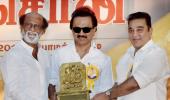
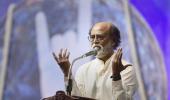






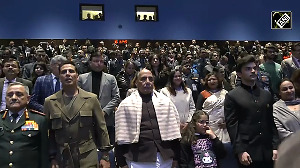
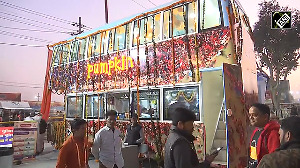
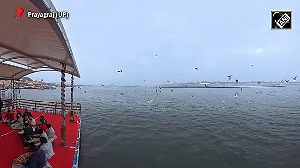
 © 2025
© 2025